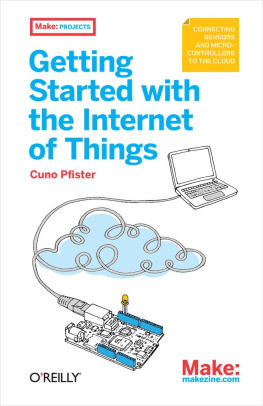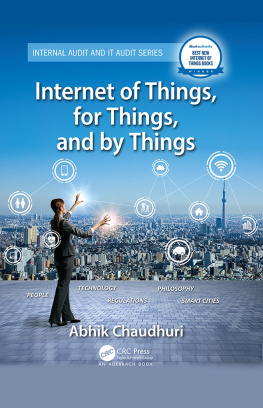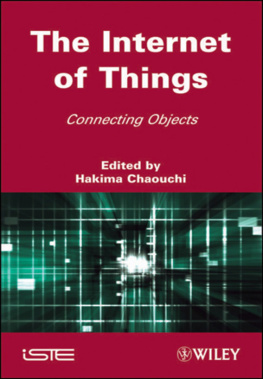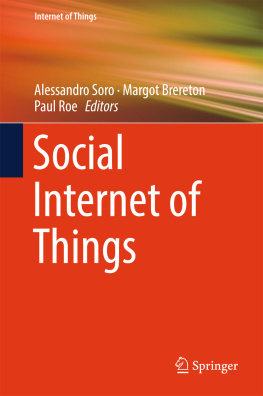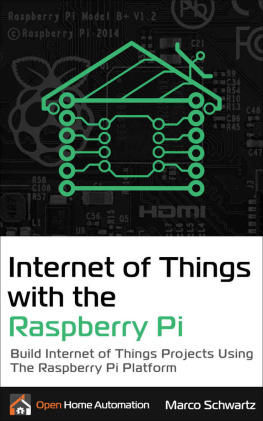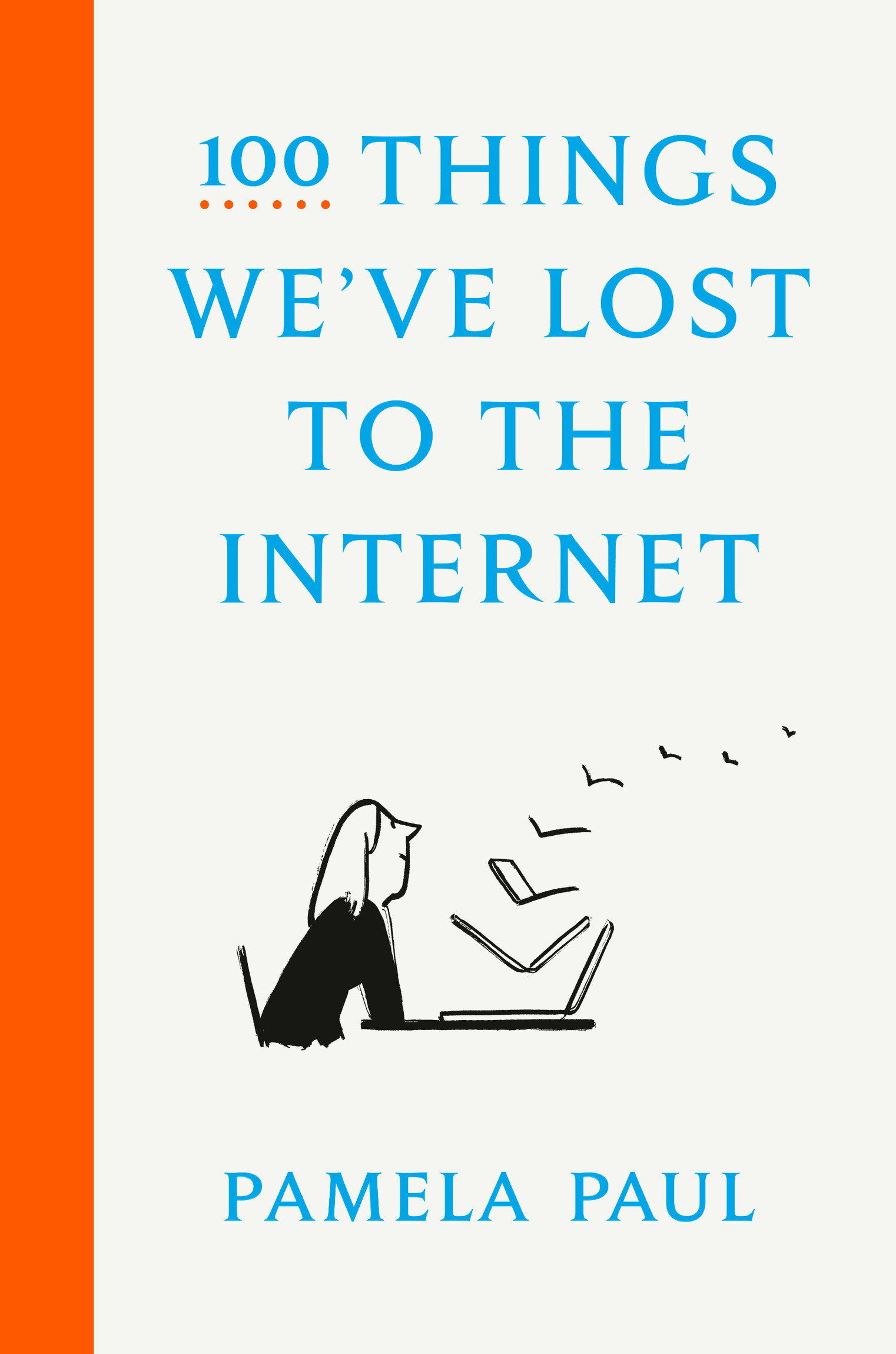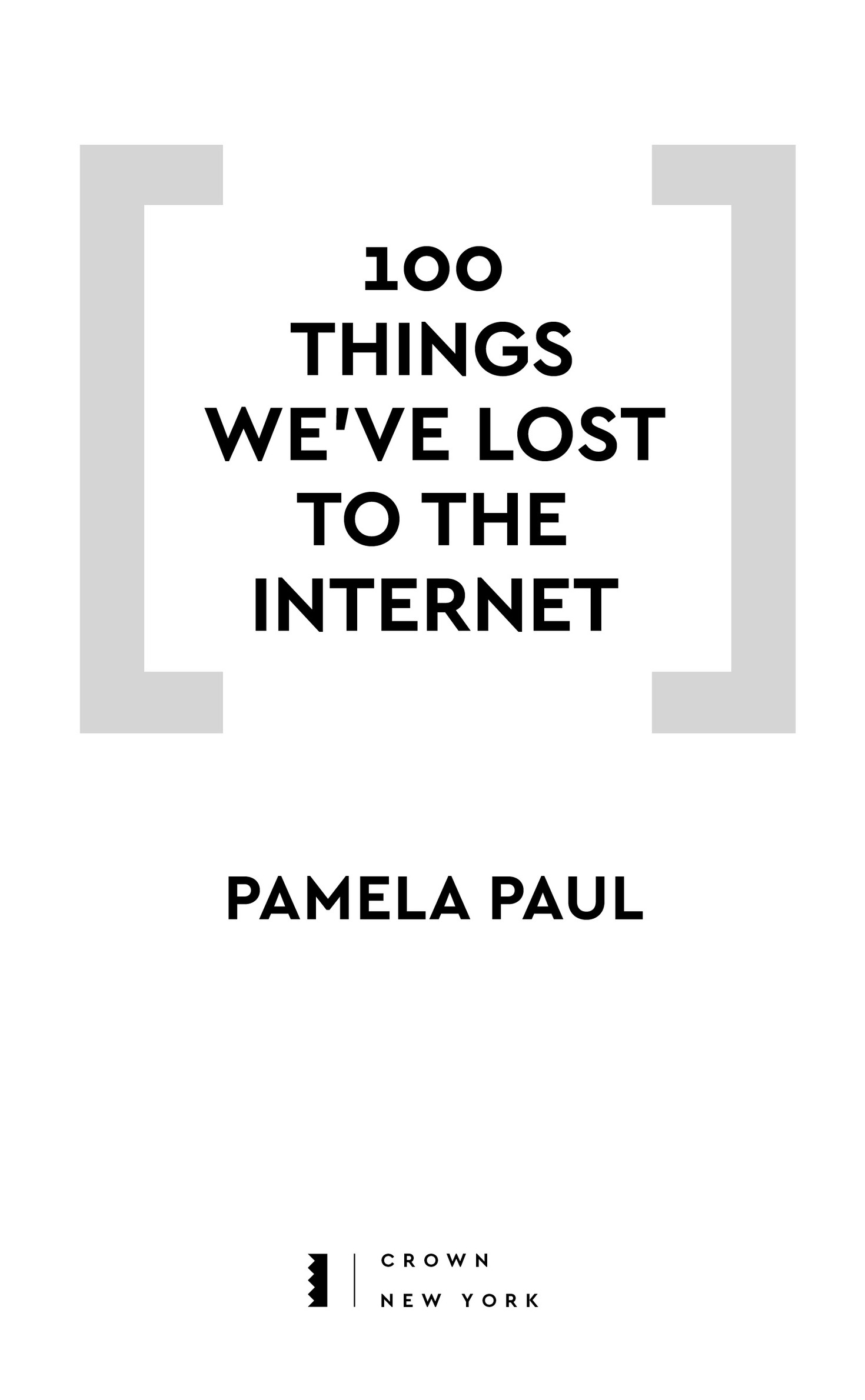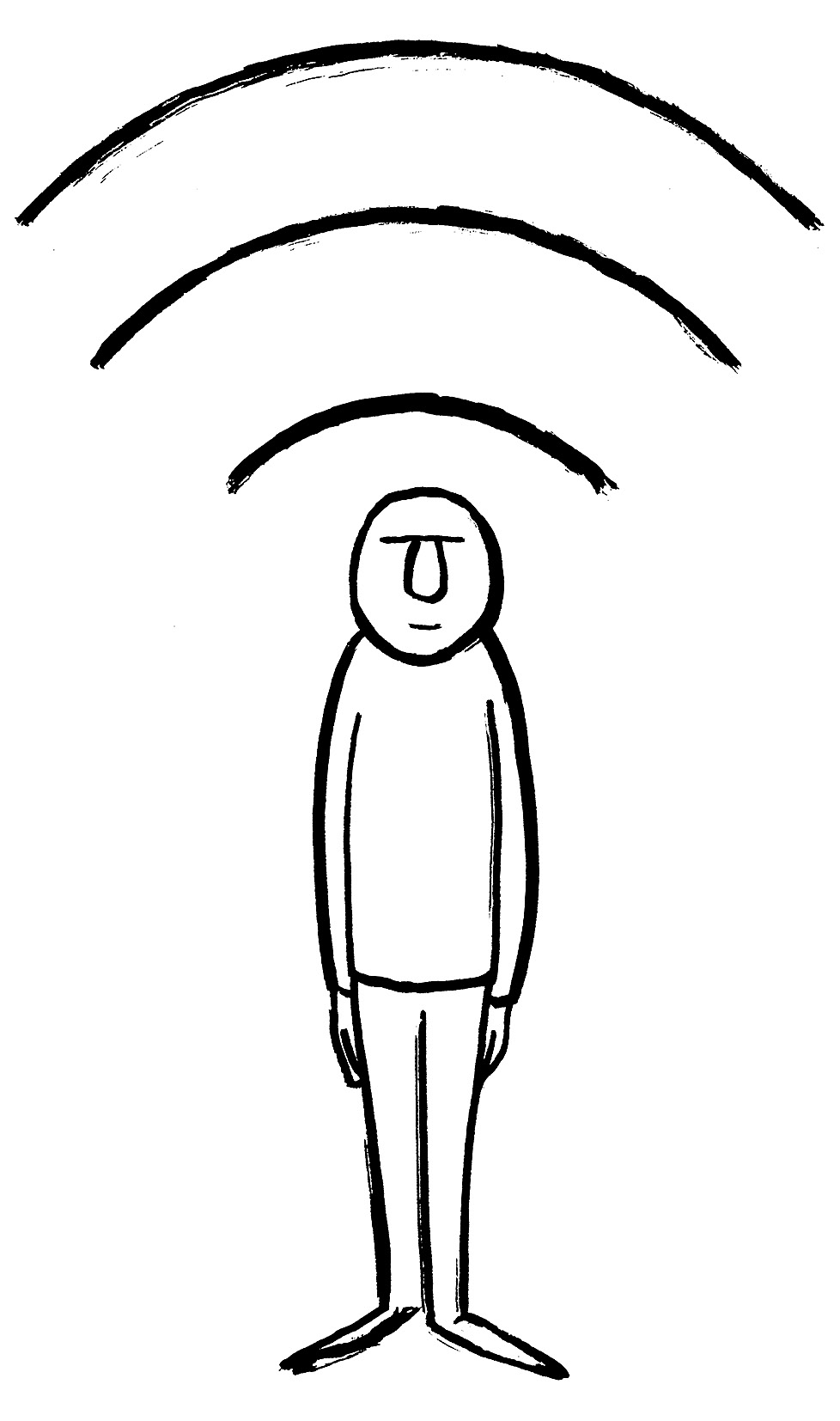Contents
Landmarks
Print Page List
Copyright 2021 by Pamela Paul
All rights reserved.
Published in the United States by Crown, an imprint of Random House, a division of Penguin Random House LLC, New York.
C rown and the Crown colophon are registered trademarks of Penguin Random House LLC.
All illustrations by Nishant Choksi.
Library of Congress Cataloging-in-Publication Data
Names: Paul, Pamela, author.
Title: 100 things weve lost to the internet / Pamela Paul.
Other titles: One hundred things we have lost to the internet
Description: New York: Crown, [2021]
Identifiers: LCCN 2021023988 (print) | LCCN 2021023989 (ebook) | ISBN 9780593136775 (hardcover) | ISBN 9780593136782 (ebook)
Subjects: LCSH: Interpersonal relations. | InternetSocial aspects.
Classification: LCC HM1111.P37 2021 (print) | LCC HM1111 (ebook) | DDC 302.23/1dc23
LC record available at https://lccn.loc.gov/2021023988
LC ebook record available at https://lccn.loc.gov/2021023989
Ebook ISBN9780593136782
crownpublishing.com
Book design by Elizabeth Rendfleisch, adapted for ebook
Cover design: Christopher Brand
Cover illustration: Nishant Choksi
ep_prh_5.8.0_c0_r0
Contents
One morning youll simply wake up and it will be over, before youve even realized. Lying still, eyes closed, ears pricked, trying to sense the flow of the morning air, youll feel that something has changed from the night before, and youll know that youve lost something, that something has been disappeared.
Yoko Ogawa, The Memory Police
INTRODUCTION
The Internet has brought us so muchinformation, access, connection, entertainment, discovery, delight, engagement, enrichment, and, occasionally and for a select few, actual riches. But because nothing about progress is ever straightforward, just as it brought us these things, it has taken things away. Some of these lost things were immediately evident: the photo albums we once painstakingly assembled using those sticky corners that inevitably stuck on crooked; the CD collection alphabetized by genre that represented who we were at our core and what we hoped others would see in us; the way we used to rush to the mailbox in the hopes of a surprise postcard from a friend abroad.
Other things we sensed more slowly, well into the aftermath of their disappearance: things that were gone or as good as gone, so far had they drifted in character from their pre-Internet selves. Like the college reunion that no longer abounds in startling revelations about who ran off with the babysitter or who has aged well and who has let it all go. Or the kind of customer service you could get only in the Bloomingdales shoe department, where you and the saleswoman would hunt down the right dress pump for Saturday night as if united in a shared mission. These vanishingsproducts, services, and practices that had hummed along with contented acceptance for as far back as we could rememberwere wiped out in less than ten short years, before we could fully grok the implications. What happened? Where did that go? Wait, since when?
We are all well aware of the weighty effects of the Internet on democracy, on citizen participation and fair elections and government accountability, on the fate of small businesses and the lives of workers; we have gone through the repeated realization that every time the Internet swings the door wide open, the consequences are at once liberating and dire. We know too well the Internets trickle-down effects on our daily existence, from the screen we tap rather than the button we press when we wake in the morning; from what we do upon rising from bed to what we worry about as we drift off at night; from the particulars of our commute and what happens once we get to work and how we gather as a family when we return home. The ways in which we negotiate the school day and the summer vacation. How we see ourselves and treat one another; how we grow up and how we grow old.
All this we know. Less remarked upon is what we used to do instead.
I started writing this book well before the coronavirus pandemic hit, already feeling the ways the Internet was navigating where my brain wandered, occasionally startled and at other times lulled by what didnt always feel like a choice, yet unaware how much deeper the quarantine would plunge melike everyone elseinto a world that was online only. And thank goodness the Internet was there! It was, quite plainly, a lifeline, providing vital health and safety information, the ability to work from a remote location, and a semblance of connection when we were all forced to live apart. Just try to imagine what the pandemic would have been like without it. But the Internet also made us feel more keenly the losses of what wed left behind in the physical out there.
Even without that viral nudge, one by one, objects, concepts, habits, and ideals that used to matter to us have fallen, sometimes with little more than a whisper, into the Internet. It can be hard to retrieve what life looked like in the before. But take a moment to think back on something as unassuming as a Saturday morning, the slowness of lazing in bed quite certain you were missing nothing exciting, snuggling down under the blankets for yet another fifteen-minute snooze. Youd wake and stretch, relishing the quiet before anyone else got up, unimpeded by what was going on in other peoples heads. The outside world remained a distant concern, something for you to engage with only when you turned on the radio or stepped out the front door. These days you may be scrolling through the thoughts and thoughtlessness of 1,500 people you barely know while still on the toilet, not even aware who else in your own house is awake and doing the exact same thing.
What does it mean when so much of our lives is filtered through a pixelated lens, and is it still possible to capture what it looks like in the old unmediated way? One paradox of the Internet is that while it has opened up the world to us, it has also made that world feel small. Weve witnessed a rectangular screen reduce an exuberant class full of children to a grid of glassy-eyed six-year-olds only half-present for their exhausted, quarantined teacher, who no longer bounds into the room full of energy for circle time, smelling faintly of gardenias or chocolate chip cookies. We have seen the magnificent sight of a rocky New Zealand shore reduced to a desktop background. Spend a few hours surfing around online and the world can look petty, repetitive, and flat.
Online (where else?) people will lament the passing of certain pre-Internet passions. One ongoing meme involves citing things that no longer exist and would stump a twenty-year-old. These lists are themselves liked and favorited repeatedly, nostalgically, almost ecstatically: Dialing a rotary phone! DVD extras. CD-ROMs. In the spring of 2019, a popular discussion on Reddit asked, Whats something the Internet killed that you miss? The responses included moving examples of small but significant relics from the recent past. The highest ranked was Having a mental catalog of great jokes that most people hadnt heard. One person mourned the toppled primacy of specialized knowledge: My dad says he misses having arguments with friends which could only be resolved by phoning whoever was most knowledgeable on a subject e.g. Did you know lightning travels upwards? No, it goes down! Lets phone your dad, hes a meteorologist. Another marked the death of shortwave radio: I had so much fun trying to tune in stations all around the world and putting pins in my world map for all of the ones I managedand you could also write to the stations with a report and get postcards and pennants and other swag from them, he wrote. I found my old shortwave radio a year or two ago (from Radio Shackanother thing I miss!), and you can still get some stuff, but the bands are dead for the most part. Its sad that magic is gone.

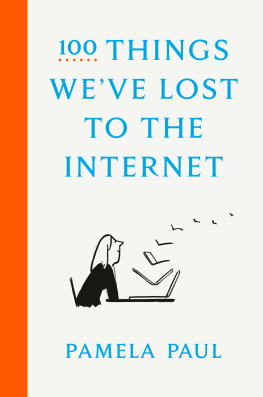

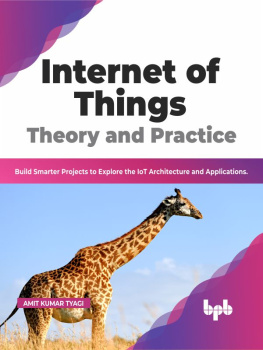
![Stack - It is just you, everythings not shit: [a guide to all things nice]](/uploads/posts/book/253795/thumbs/stack-it-is-just-you-everything-s-not-shit-a.jpg)

